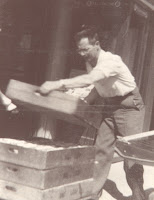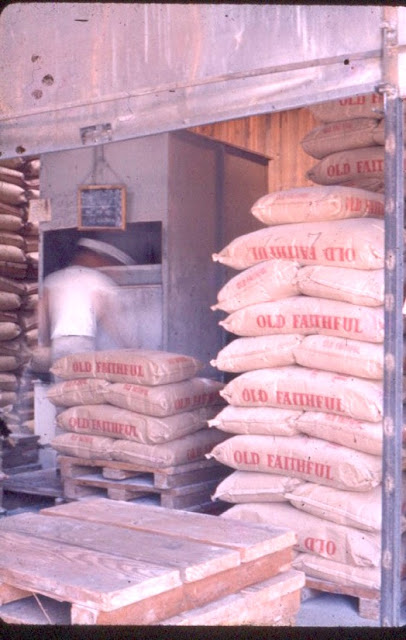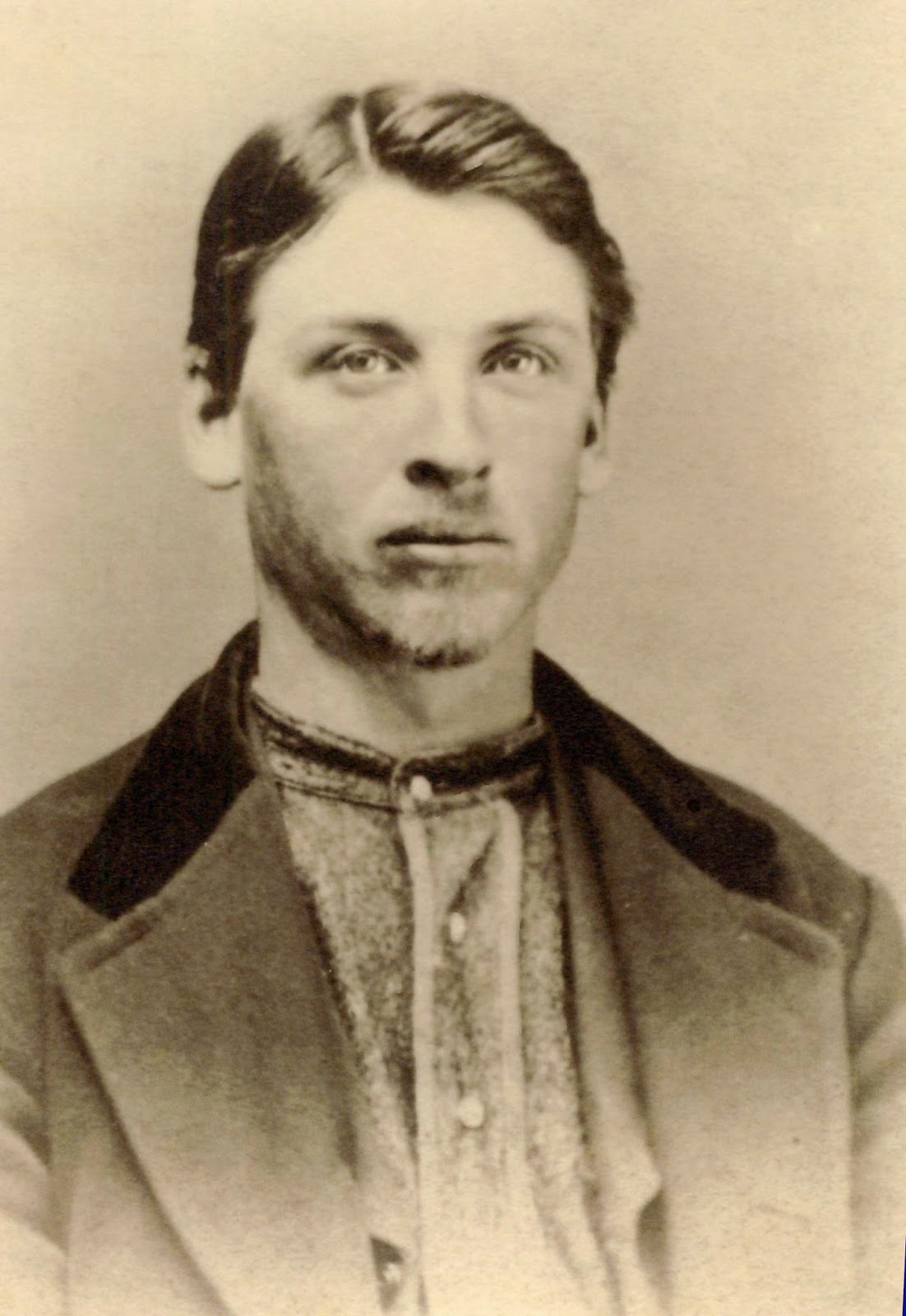In February my wife's mother, Elizabeth, who had lived with us for the last year and a half, died at almost 96, so I have been thinking about death and dying for more than a month now.
 |
| Grandma Elizabeth |
The first time I ever thought about death was when I was less than four. I didn't really think about it, I just started crying. My parents and I were at my Aunt Florence's home in Eureka, California, probably about 1944. My mother came up to me and said, "Daddy might go into the army."
I started screaming and crying and yelling, probably what we call "having a fit." I remember it clearly today. I didn't think about dying. I just started crying.
"Don't you want to see Daddy in a uniform?" she said. I started screaming and crying again. I don't know what I was thinking, I just remember the crying.
My father didn't go into the army, but he joined the California State Guard. The War ended the next year. He didn't have to fight.
I cannot remember anyone who I knew when I was that little that died in The War. Other than listening to the radio and going to movies with my parents. There was no T.V. I don't know what could have triggered that crying fit.
-----------------------------------------------
The next episode in my dealing with dying was when my Great Grandmother Eunice Hanson died. We had gone to see her a few times. She sat in a rocking chair and seemed very old to me. Now I would have written that I was seven or eight when she died, but I just looked it up and I was 14. I cannot explain why my .......memories ......felt .....so ......young.................. Now guess what..........?
 |
| My Great Grandmother Eunice Hanson Price |
That wasn't my Great Grandmother Eunice Hanson's death. I cannot remember when she died, but the time I'm thinking of just couldn't be her because when I was 14, I didn't live in the house where the memory is.
The memory is of my mother getting dressed up, and crying. She was in the kitchen. I was in at least the third grade, but not in the sixth, because it was not just before we moved from that house, and we moved in the summer after my sixth grade year.
I was between eight and ten. She told me she was going to a funeral, and I suppose she told me whose, and all these years until just now, when I tried to write about it, I thought it was my Great Grandmother, but it could not have been. So I guess
that death didn't really affect me, but it affected my mother, and that caused me to be concerned about death, but I cannot even figure out who the person was. I don't have one person in my family history who was close to me who died in those years, so it was my mother's actions that caused me to think it must have been my Great Grandmother.
-----------------------------------------------
We get a lot of our emotions and attitudes about occurrences in life from our parents without any verbal communication at all. If we are a little child and our mother sees a spider in front of her and screams, we will probably be afraid of spiders. I'm glad my mother never screamed in front of me with a spider near.
My father's brother died when he was 16, about two years before I was born, and my mother's brother died about eight years before I was born when he was only 14, and my mother's father died only four months
after I was born, when he was 56. They were all young, so my parents had to deal with death right before my first memories. I suppose I got my early attitudes about death from them.
-----------------------------------------------
Darrell Britt (we called him Tony) was a few months younger than me. We were in junior high and high school together for three or four years, in PE classes together, and he also worked with me delivering papers.

Every morning we got up at 5 a.m. and rode our bikes down to the Greyhound bus depot and loaded the San Francisco Examiner bundles into Fred Whitmire's old grey Dodge car. He drove them to the "paper office," a little empty warehouse, where we folded them, loaded them onto our bikes and took off on our routes.
Tony was late often. Sometimes he didn't show up. I called him. I even went to his house early, knocked on the door and tried to wake him, so he would get his route done. We often had to wait for the papers, so we'd talk, or we threw old papers at each other, or we'd wrestle. One time when we were wrestling we fell out the window, and I broke my collar bone.
He liked to fish, and hunt ducks. He had a boat and rowed it in Humboldt Bay, hunting or fishing. When he did that, his Brother Russell took his route. Sometimes Russel would come instead of Tony for two or three days. I got to be friends with Russell who was a couple of years younger than Tony.
Usually one or the other would finally arrive. When they were late, we rolled their papers for them and stacked them, so all they would have to do was load them on their bike.
 |
| Robby and Theresa 1963 |
One morning neither Russell nor Tony showed up. I called the house, but there was no answer. I guess Fred Whitmire finally delivered the papers. That day there was talk at school that Tony had died, drowned in the bay while fishing or hunting ducks. The next morning it was in the newspaper.
Tony drowned December 19, 1956.
I didn't know how to deal with that, so I did what I thought my mother and father did. I didn't think about it.
I didn't know what to say to Russell when he came to work, ....... so I stayed away from him.
 |
| Betty & Cindy March 1963 |
-----------------------------------------
A little over a year later, Dorothy and I were married. We had three children, and then Cindy was born in August of 1962. She only lived a year and died in September of 1963. That was when I began to learn better ways about dealing with death.......
I will tell you about it in the next edition.





























